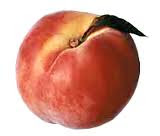Not surprisingly, the election of a president from an ethnic minority and with an international background, while refreshing to many open-minded people, has brought a great deal of mean-spirited bigotry out into the open. Maybe this is our chance to shine a light on some creatures that have been hiding under rocks for a while. Whether or not we do that, I think it is the obligation of all good Americans, regardless of our political views, to be civil ourselves and to discourage uncivil behavior in others.
With that out of the way, here is today's bit of verse:
But what of the insiders? Were they not
selected for their cultural views?
Aren’t they our moral proxy in this spot?
Would they perform as we might not excuse?
Insiders? They’ll be neither good nor bad.
They won’t be the conductors anymore.
They will have given up the reins they’d had
when they and their containers came ashore.
While technically they’ll be in control—
they can take over any time they choose—
they won’t do so unless they have a goal,
like finding homes for overcrowded crews.
Instead, throughout the day-to-day routine
the robots will act at their own behest.
Aren’t we content to let a smart machine
attend to mundane tasks and let us rest?
©2010 Louis A. Merrimac
Like finding homes: This is a key to understanding the story line in Canto II, and it is easy to miss the connection. When a carrier is nearly full, the occupants ("insiders") take control so they can find a new tube and move people into it. The carriers would not perform this act of their own volition because they cannot have trained one another to do it and their self-interest would never lead them to do it. This analogizes to the sexual drive and other instinctive behavior in animals that leads us to take actions that risk our own health and safety in order to propagate our genes. According to the theory developed in Cantos III and IV, if I grasp it correctly, this is enough in nonhuman animals to keep things going, but it works only as long as the participants in the process remain ignorant of its mechanics. To say any more at this point might spoil your enjoyment of the remaining cantos. I’ll let you discover the way I did what the author calls the “amoral of the story”, but I’m giving you a few hints so you don’t have to read back and forth as many times as I had to do.

No comments:
Post a Comment